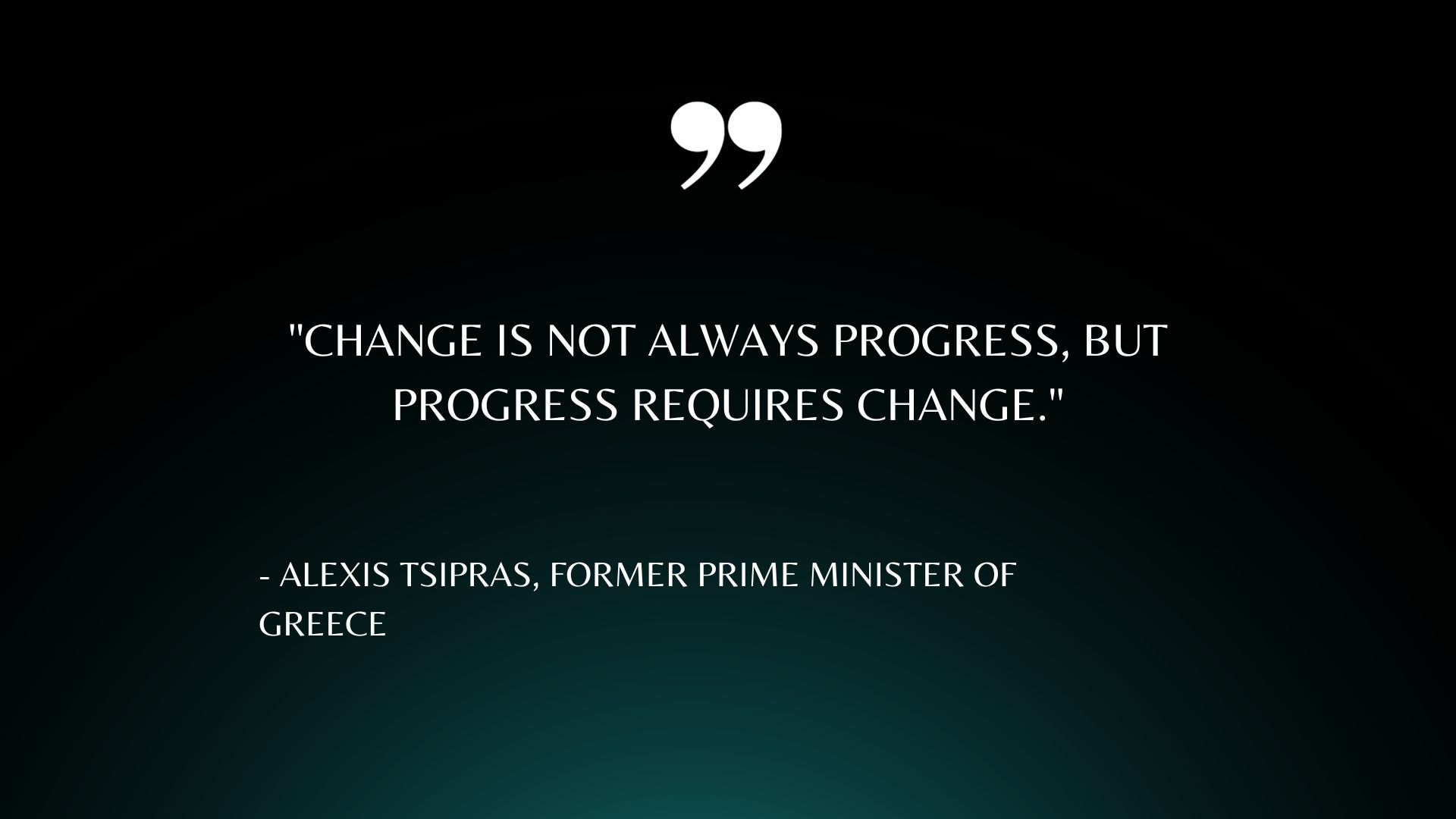“Change is not always progress, but progress requires change.”
– Alexis Tsipras, Former Prime Minister of Greece
Explanation:
The quote “Change is not always progress, but progress requires change” by Alexis Tsipras, the Former Prime Minister of Greece, captures the complex relationship between change and progress. In this explanation, we will delve into the meaning behind this quote, highlighting its significance and applicability to real-life situations.
I. Understanding the Quote:
Change: The Nature of Transformation
Progress: The Desired Outcome
The quote suggests that change in and of itself does not guarantee progress. Change can manifest in various forms, such as political reforms, technological advancements, or personal transformations. However, the resulting impact may not always lead to progress. Progress, on the other hand, represents the forward movement or improvement toward a desired goal or outcome.
II. The Paradox of Change and Progress:
Unchecked Change and Lack of Progress
Guided Change and Achieving Progress
While change can be disruptive and transformative, its mere occurrence does not guarantee progress. Unplanned or haphazard change can lead to unintended consequences, setbacks, or even regression. The absence of a clear vision, strategy, or direction can hinder progress. In contrast, guided and purposeful change, driven by a well-defined plan or objective, has a higher likelihood of resulting in progress.
III. Real-life Example: Technological Innovation and Society:
The Advent of Social Media
Balancing Change and Progress
The rise of social media platforms exemplifies the dual nature of change and progress. The advent of platforms such as Facebook, Twitter, and Instagram brought about significant changes in how people communicate and interact online. Initially, this change was viewed as progressive, facilitating connectivity, and information sharing. However, as time passed, the negative consequences of unregulated social media became evident, including misinformation, cyberbullying, and privacy concerns. This highlights that change alone does not equate to progress. To achieve progress, society needs to navigate the changing landscape by implementing regulations, promoting digital literacy, and fostering responsible use of social media platforms.



